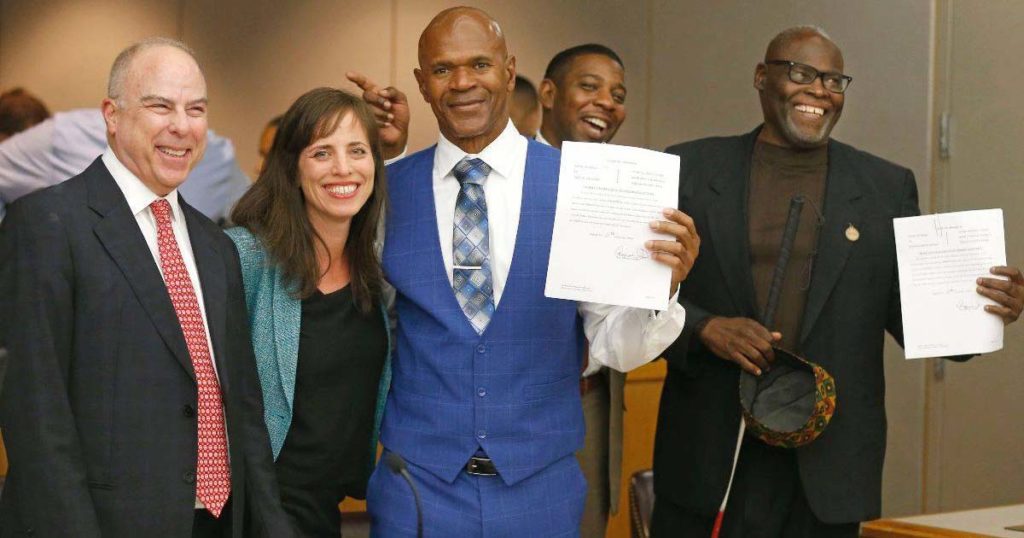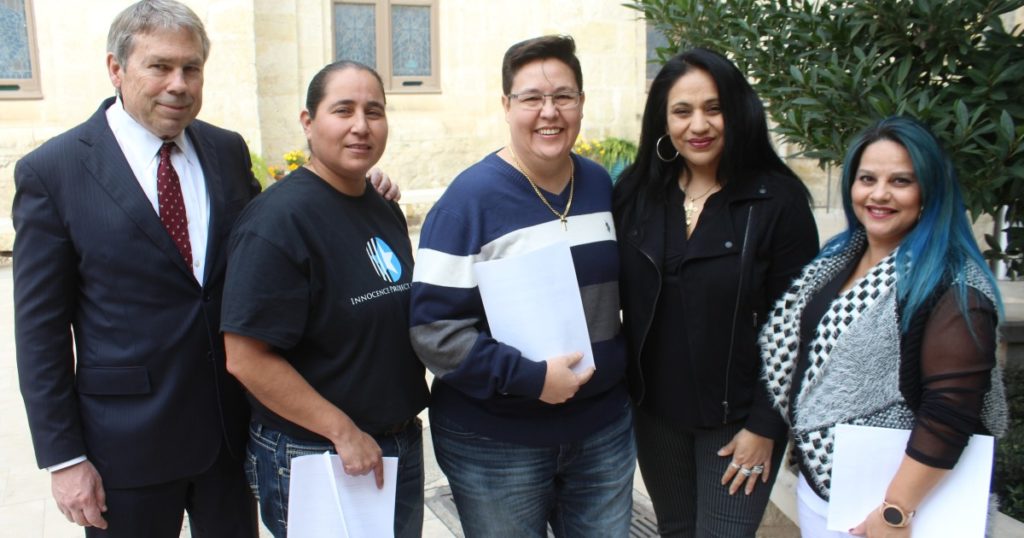
IPTX: Wrongful Conviction and the Long Road to Exoneration
By GO HumanityThe Innocence Project of Texas is one of the leading innocence organizations in the country having exonerated 27 people since 2006. Discriminatory policies and practices at all stages of the criminal justice process unjustifiably disadvantage people of color and people living in poverty. Last year the inequality of our criminal justice system was brought into sharp relief with the death of George Floyd. We see the results of this inequality every day. Today, there are more than 6,000 people in Texas incarcerated for a crime they did not commit.
One of those people was our client Lydell Grant. In 2010, a jury convicted Lydell of the 2010 fatal stabbing of a man outside a Houston bar, sending him to prison for life. The road to exoneration is a long one. On average, it takes 14 years to get a wrongfully convicted person out of prison and reunited with their family. For Lydell, his release took nine years. Nine years separated from his loved ones and knowing that he was innocent.
The evening after the murder, Lydell parked his car near the bar where the murder had taken place. A bouncer at the bar who had witnessed the stabbing thought he looked like the killer and wrote down his license plate. From that point forward, Lydell was the only suspect. Despite having an alibi for the night of the murder, six witnesses of the crime identified Lydell in a photo lineup. There was also DNA under the victim’s fingernails but, at the time of the trial, it was described as inconclusive, meaning that it could not be confirmed to be Lydell’s but the crime lab staff also stated that it couldn’t rule him out. The jury convicted based on the faulty witness testimony. IPTX was able to have the DNA retested in 2019 and it belonged to another person whose DNA was on file for other crimes. Once apprehended, he confessed to the murder.
 The Harris County District Attorney’s Office office moved swiftly to release Lydell from prison. But his name has not been cleared. The Texas Court of Criminal Appeals heard his case in late 2019, but despite the DNA evidence and a confession from the real killer, they did not grant Lydell’s exoneration. They required that all six witnesses recant their statements despite a large body of scientific evidence showing the biases and inaccuracy of eye witness. Since 1989, when the National Registry of Exonerations began tracking wrongful convictions in the United States, more than 76 percent of DNA exonerations include witnesses who identified the wrong person. Of those, the wrongfully identified person was Black in 65% of the cases.
The Harris County District Attorney’s Office office moved swiftly to release Lydell from prison. But his name has not been cleared. The Texas Court of Criminal Appeals heard his case in late 2019, but despite the DNA evidence and a confession from the real killer, they did not grant Lydell’s exoneration. They required that all six witnesses recant their statements despite a large body of scientific evidence showing the biases and inaccuracy of eye witness. Since 1989, when the National Registry of Exonerations began tracking wrongful convictions in the United States, more than 76 percent of DNA exonerations include witnesses who identified the wrong person. Of those, the wrongfully identified person was Black in 65% of the cases.
What happened to Lydell Grant can, and does, happen to other people every day. But it is far more likely to happen if a suspect is black. According to the National Registry of Exonerations, black men are seven times more likely to be wrongfully convicted of murder and twelve times more likely to be wrongfully convicted of drug charges. IPTX continues to fight for his exoneration so that Lydell can truly be free.

Exonerees the “San Antonio Four” (Image courtesy IPTX)
At IPTX, we know that it is not enough to free the wrongfully convicted from incarceration. We have a responsibility to work toward a system that does not allow wrongful convictions to happen in the first place. IPTX is a leading advocate of evidenced-based policy reforms designed to improve the criminal justice process and prevent future wrongful convictions.
One of our most important goals is to educate the public about wrongful convictions. IPTX’s Director of Outreach and Education, Anna Vasquez, is an exoneree who works tirelessly to share her story and put a face on the injustices that take place in Texas. Anna and IPTX staff speak regularly to legal professionals, universities, civic and religious organizations and others to shine a light on the causes and consequences of wrongful convictions.
IPTX is grateful for the generosity of Foundation Beyond Belief and its supporters to help us free the innocent, reform criminal justice practices and educate the public about wrongful convictions.
Wrongful conviction is one of many issues we aspire to eliminate through FBB’s Humanist Grants program. Each year, you help us provide support to high-impact organizations like IPTX working in their communities to eradicate poverty, ensure human rights, support quality education, and protect our natural world. We can’t do it without you. Click here to chip in to the grants program today.

